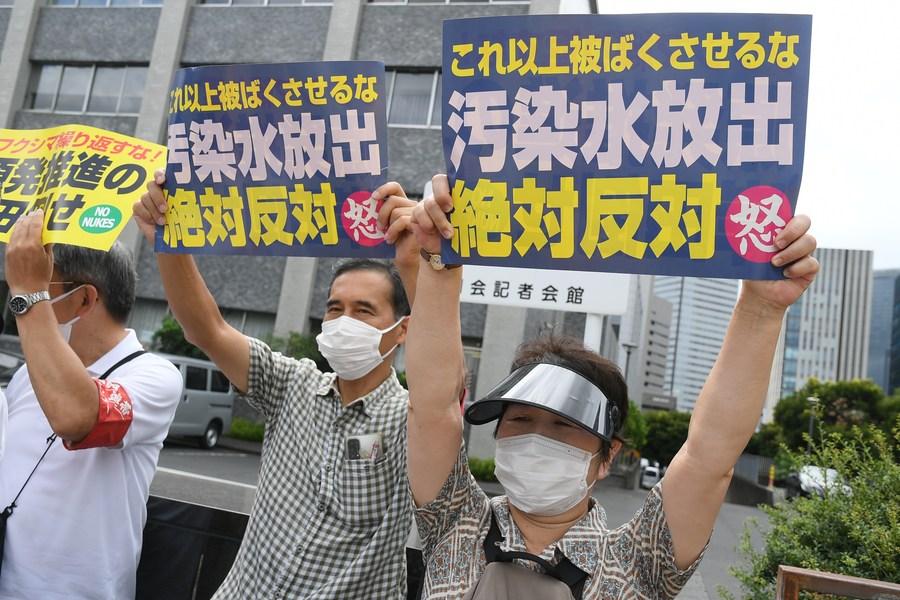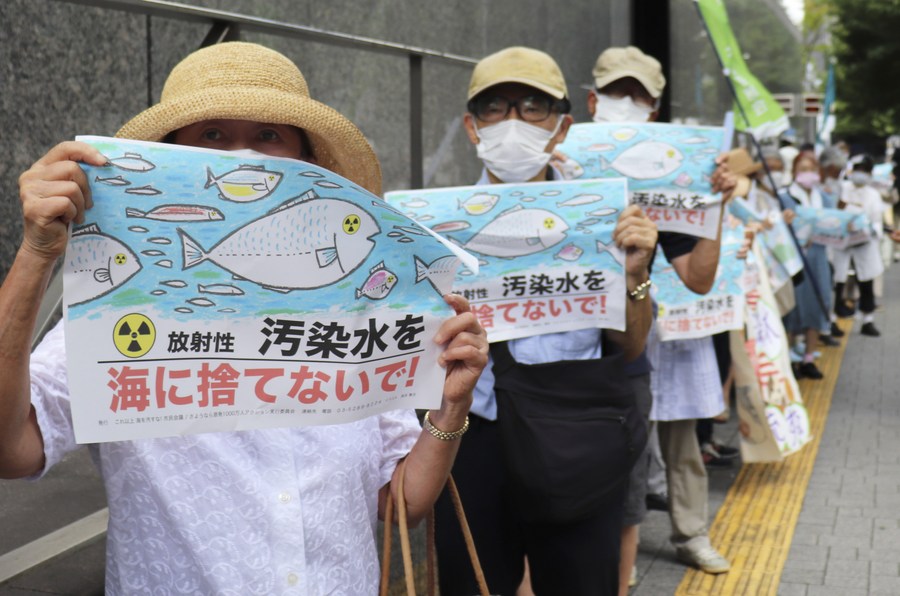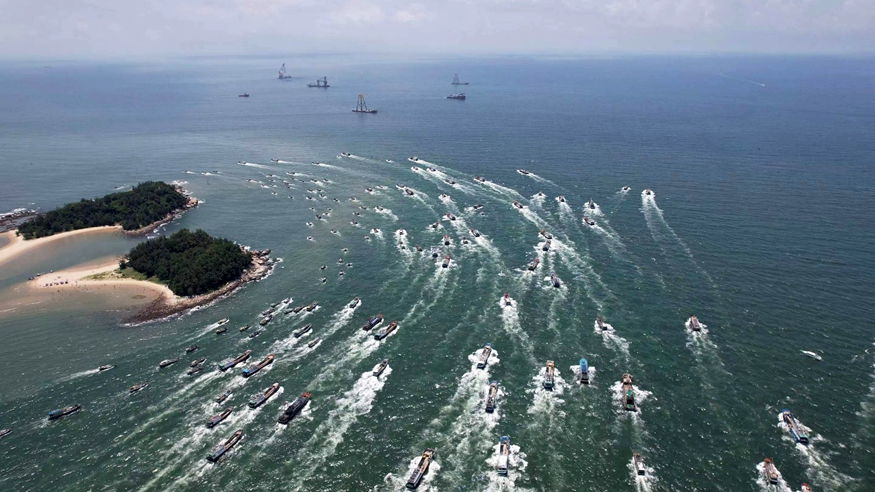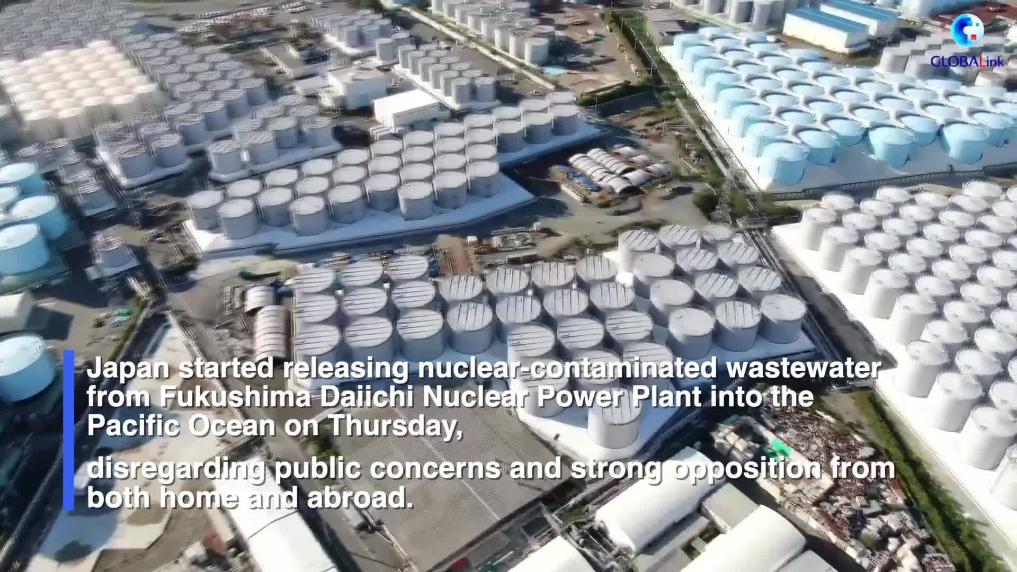
People gather to protest the Japanese government's irresponsible decision to start releasing nuclear-contaminated wastewater in front of the Japanese prime minister's official residence in Tokyo, Japan, Aug. 22, 2023. (Xinhua/Feng Wuyong)
The release of wastewater into the ocean would be a disaster for maritime security, the blue economy, oceanography, biodiversity and climate change, and will increase the risk of radiation in the region and beyond, said a Pakistani expert.
ISLAMABAD, Aug. 26 (Xinhua) -- Japan's self-centric and irresponsible approach to dumping nuclear-contaminated wastewater in the sea will take a serious toll on human health and the global ecosystem, a Pakistani expert said.
The release of wastewater into the ocean would be a disaster for maritime security, the blue economy, oceanography, biodiversity, and climate change, and will increase the risk of radiation in the region and beyond, Mehmood Ul Hassan Khan, the executive director of the Islamabad-based Center for South Asia & International Studies, said in a recent interview with Xinhua.
Despite widespread denunciation at home and abroad, Japan on Thursday started discharging nuclear-contaminated wastewater from the crippled Fukushima Daiichi Nuclear Power Plant into the Pacific Ocean.
"It is feared that such willful behavior of Japan would create a regional security risk for all the regional countries, so it is their right to be properly consulted, cooperated, and coordinated before nuclear-contaminated wastewater's disposal in the sea," the executive director of the Islamabad-based think-tank said.
It clearly shows that the water will still have radioactive elements and could significantly impact the environment and have health-related consequences, so the Japanese method of releasing nuclear-contaminated water is full of risks, he added.

People gather to protest the Japanese government and Tokyo Electric Power Company's (TEPCO) decision on releasing nuclear-contaminated wastewater in front of the headquarters of the TEPCO in Tokyo, Japan, Aug. 24, 2023. (Xinhua/Yang Guang)
Talking about criticism from inside Japan, and the concerns shown by the fishing industry of the country regarding the discharge of radioactive wastewater, Khan said that it makes the decision of the leadership of the country far more controversial and shows that the locals are concerned about the devastation this action can cause to the Japanese public image.
Ironically, looking at the public opinion, clearly Japan is not considering the interests of their own fishermen and citizens and the Pacific ecological system, he said, adding that in order to save money Japan is putting many at risk.
A Chinese Foreign Ministry spokesperson said in a statement that "China firmly opposes and strongly condemns it. We have made serious demarches to Japan and asked it to stop this wrongdoing."
On Thursday, China suspended imports of all seafood products from Japan, with the Chinese customs authorities saying they are greatly concerned about the risk of radiation contamination following the water's release and have strengthened restrictions on food imports from Japan to "protect the lives and health of the people."
It is a good omen that China has been critical of this plan to dump nuclear wastewater and rightly so, as this project threatens the safety, goodness, and overall health of the entire global community, threatens the livelihood of locals, and puts the global marine ecosystem in severe danger, the Pakistani expert said. ■












